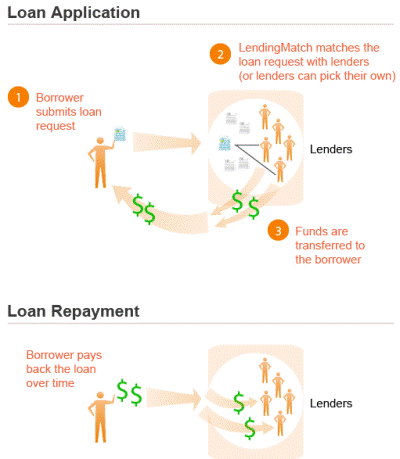Most of the discussion so far was whether p2p lending is or could become disruptive – threatening the bank’s core business. So it was fast moving internet startups versus the incumbents which were often viewed as not very innovative.
As for social networks, the thoughts centered on how available social networks data could be used to improve the process of p2p lending service. See my article ‘For Debate: Can Data From Social Networks be Used to Reduce Risks in P2P Lending‘. Lending Club in fact aqknowledged in January that it already uses some social network data in it’s process.
Now there is an interesting speculation on the Finextra blog (read the comments, too) whether Facebook could compete with the banks and might enter p2p lending in this course. This is an interesting thought. But the main argument is that Facebook has a large number of users and if only a fraction of them would use financial services they could gain a huge customer base. With that argument you could argue that Facebook could compete in any industry. Just pick one you like.
And while cross border p2p lending would be fascinating the downside as we already now is that regulation differs widely between national markets. But Facebook could have the size to tackle a task like this. The real question is: Do they plan to?


